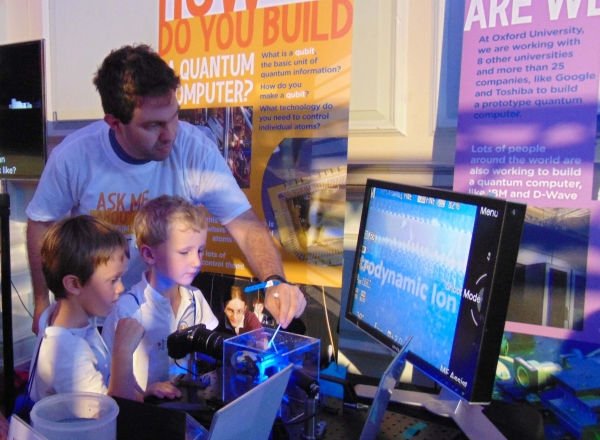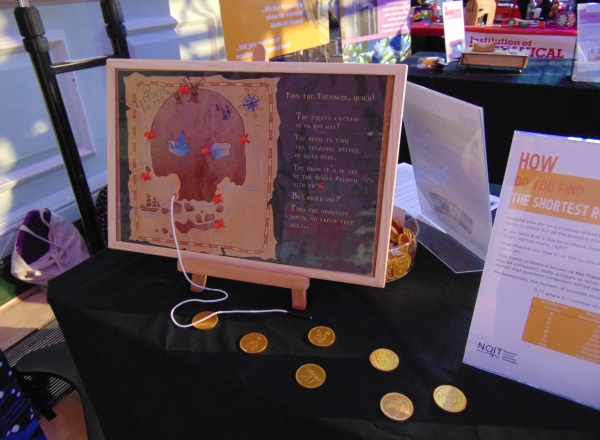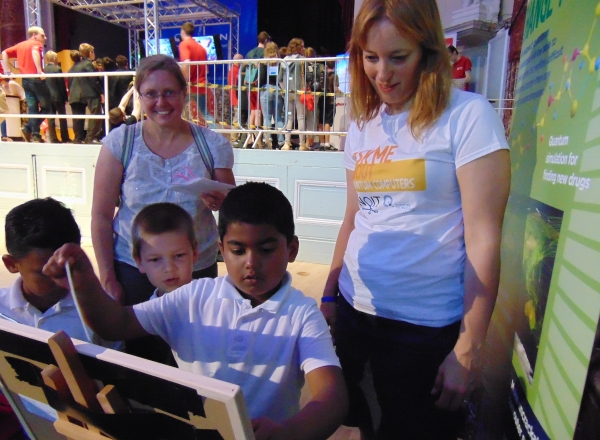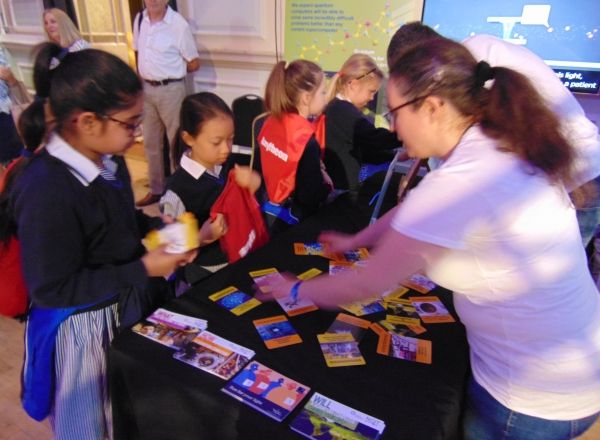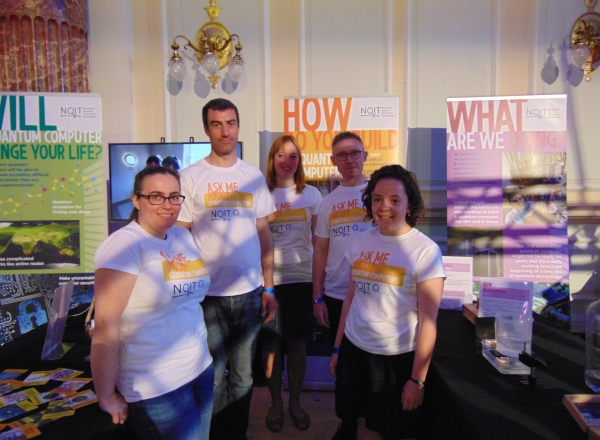NQIT at the Cheltenham Science Festival
Over three days, a group of NQIT researchers and graduate students demonstrated the fundamental physics behind our approach to quantum computing - ion traps Ion Trap and photonics - and explained some of its potential applications.
We used a rotating saddle trap that keeps a ping pong ball stable while it spins to illustrate how we use a rotating electric field to trap single ions in an ion trap.
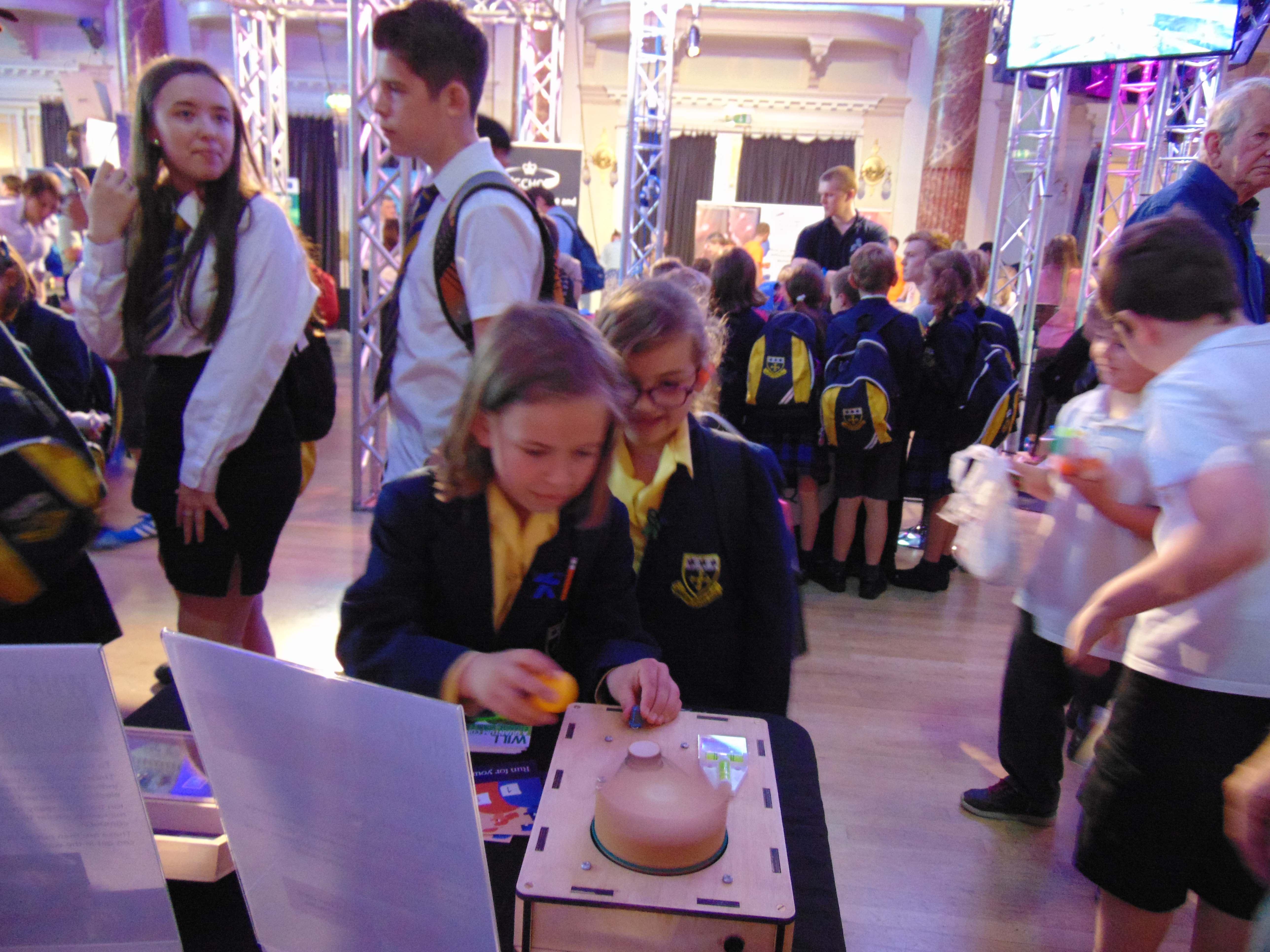
This was then further demonstrated with a dust trap where electrostatically-charged grains of sand are trapped inside a static electric field.
We showed visitors how you can control light with a beautifully simple demonstration involving shining a laser pointer into a flow of water – the photons follow the curving path of the water in just the same way that they flow down an fibre optic cable providing internet to peoples’ homes or photonic networking in our quantum computer. This was demo from the Oxford Optics and Photonics Student chapter (OSA) who we teamed up with for the NQIT stand - thanks to Joelle and Joseph for helping us out.
We explained why quantum computers will be faster than regular computers using a fun and quick game of “snap” with a twist that the ‘regular computer’ has to sort through the deck of cards one card at a time whereas the ‘quantum computer’ can see all the cards face-up on the table because they are in a “quantum superposition of all possible solutions”.
Lastly, we invited visitors to find the pirate treasure (and win a chocolate coin) by finding the shortest route to search all the locations on the treasure map. This is a demonstration of the Travelling Salesman problem – it’s not that difficult to solve for a handful of points on a map, but the complexity increases exponentially as you add more points to the map. This is the sort of problem that quantum computers are likely to be able to solve considerably more quickly than classical computers.
Hundreds of visitors to the festival - young and old - visited our stand and had a chat about our work and it would not have been possible without our brilliant team of NQIT volunteers: Hannah, Ben, Anna, Philip, Sian, Iris, Josh, Joseph and Joelle - thanks to you all!
